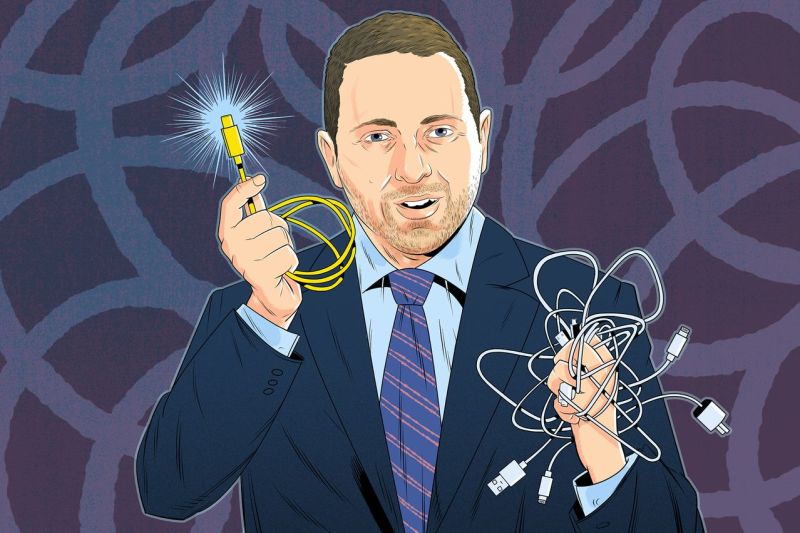How a local government representative from Malta compelled the world’s largest company to change its product design.
In the bustling corridors of the European Union, a young politician from Malta, Alex Agius Saliba, emerged as an unlikely hero for consumers worldwide. Representing the EU’s tiniest member, Saliba didn’t just take a seat; he took a stand, particularly against tech giant Apple.
Global Impact from a Small Island
Saliba’s journey began with addressing local concerns, like illegal fishing activities affecting Malta. However, his vision wasn’t confined to the island’s shores. He soon set his sights on a global tech dilemma: the myriad of device chargers cluttering our lives.
Championing Universal Chargers
While most gadgets complied, Apple’s iPhone, with its unique Lightning port, stood as an exception. Saliba, armed with a box of tangled cables and a vision of a simplified future, advocated for a universal charging solution.
One Charger to Rule Them All
“Today, we are replacing this pile of chargers with just…this,” proclaimed Saliba, holding aloft a single USB-C charger. This symbolic gesture marked a new era, where a single charger would suffice for various devices, creating convenience and reducing electronic waste.
Apple Had To Comply
Apple, known for its proprietary technology, had to yield. The upcoming iPhone is expected to bid farewell to the Lightning connector, embracing the USB-C port to adhere to the new regulations championed by Saliba. It’s a change that Apple neither anticipated nor desired, but it had to comply.
A Victory for Sustainability?
While EU regulators celebrate the move as a victory for common sense and environmental conservation, saving an estimated $250 million annually, Apple views it differently. The tech behemoth argues that the shift might stifle innovation and inconvenience users accustomed to the soon-to-be-obsolete cables.
The Brussels Effect
This development is a classic example of the “Brussels Effect,” where EU regulations significantly influence global markets. With Apple generating a quarter of its revenue from Europe, the EU’s decisions undeniably impact the company’s global strategy and product design.
A Small Player’s Big Win
Saliba may represent a small island, but his influence is undeniably gigantic. His advocacy for universal chargers isn’t just for Malta or Europe; it’s a vision for simplifying lives worldwide.
As consumers eagerly await the new iPhone, Saliba’s impact is evident, showcasing that even a small player can change the game in the global tech arena!
What are your thoughts on Apple’s product design change in favor of USB C?
#productdesign #Apple #iPhone #regulations #design
Data: The Wall Street Journal

